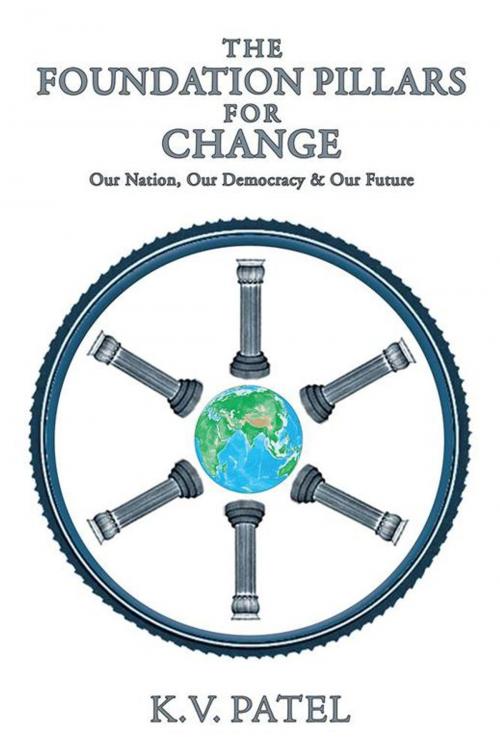The Foundation Pillars for Change
Our Nation, Our Democracy & Our Future
Nonfiction, Social & Cultural Studies, Social Science, Anthropology, Political Science| Author: | K. V. Patel | ISBN: | 9781482815627 |
| Publisher: | Partridge Publishing India | Publication: | February 28, 2014 |
| Imprint: | Partridge Publishing India | Language: | English |
| Author: | K. V. Patel |
| ISBN: | 9781482815627 |
| Publisher: | Partridge Publishing India |
| Publication: | February 28, 2014 |
| Imprint: | Partridge Publishing India |
| Language: | English |
The author had identified six Foundations Pillars that are the essential and minimum requirements for all nations, to ensure development and improvements for all their citizenry. These are appropriate building blocks, regardless of the type of government the nation has, or the level of industrialisation and progress of their economy. This book focuses on India; it provides a dimension to the already ignited and meaningful discussion and debate for the 2014 Indian General Elections. It focuses on national and regional level issues to identify longer-term sustainable changes that are required for the essential improvements in India, for the benefit of all its citizens. Building on the principle of Ashokas Pillar and stone inscribed edicts found across South Asia, this book aims to engage citizens to the key priorities and importance of the six Foundation Pillars that form the basis of national transformational changes that are necessary to ensure improvements for all our citizens. Using the analogy of a house, a house we name India, these priorities form the six Foundation Pillars on which the new House of India can be built, they are the necessary components before citizens can the build a new Indian super-structure house above ground. The weaker these Foundation Pillars, the greater the chance of unevenness and movement, and consequently, that the building blocks above ground will crack, damage and eventually either need rebuilding or redesigning. The Indian approach, in many aspects follows behaviour of build-neglect-rebuild, where they build something, not necessarily to last, but sufficient for a period, neglect it, and then have to rebuild it, as by that time it is beyond repair. This is where the author believes India is at the moment, and this case study focuses on what citizens could do to change this for their benefit.
The author had identified six Foundations Pillars that are the essential and minimum requirements for all nations, to ensure development and improvements for all their citizenry. These are appropriate building blocks, regardless of the type of government the nation has, or the level of industrialisation and progress of their economy. This book focuses on India; it provides a dimension to the already ignited and meaningful discussion and debate for the 2014 Indian General Elections. It focuses on national and regional level issues to identify longer-term sustainable changes that are required for the essential improvements in India, for the benefit of all its citizens. Building on the principle of Ashokas Pillar and stone inscribed edicts found across South Asia, this book aims to engage citizens to the key priorities and importance of the six Foundation Pillars that form the basis of national transformational changes that are necessary to ensure improvements for all our citizens. Using the analogy of a house, a house we name India, these priorities form the six Foundation Pillars on which the new House of India can be built, they are the necessary components before citizens can the build a new Indian super-structure house above ground. The weaker these Foundation Pillars, the greater the chance of unevenness and movement, and consequently, that the building blocks above ground will crack, damage and eventually either need rebuilding or redesigning. The Indian approach, in many aspects follows behaviour of build-neglect-rebuild, where they build something, not necessarily to last, but sufficient for a period, neglect it, and then have to rebuild it, as by that time it is beyond repair. This is where the author believes India is at the moment, and this case study focuses on what citizens could do to change this for their benefit.















